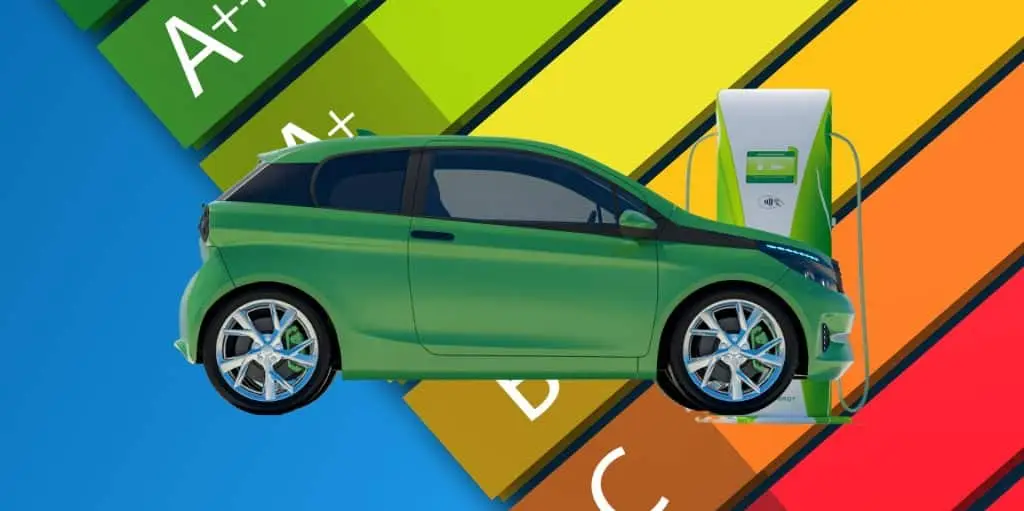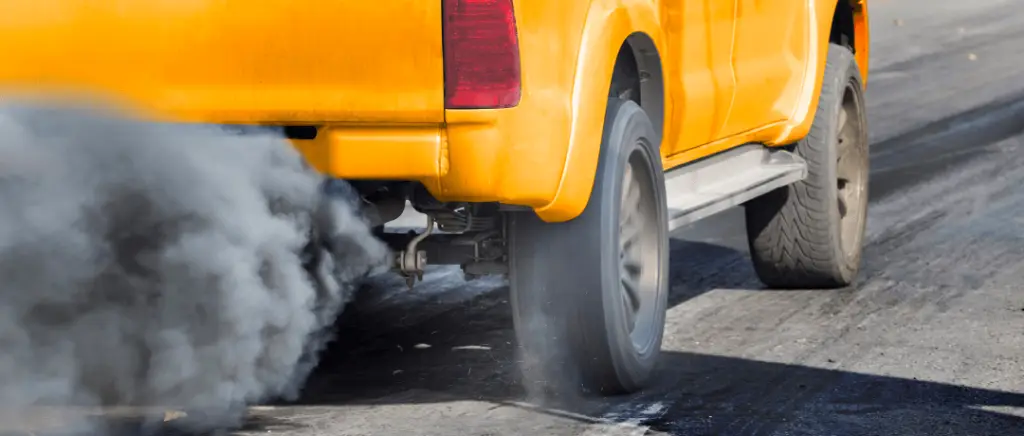Simply compare and find the vehicle that's right for you
The main changes to the ecologic malus in 2024
The introduction of a threshold of 118g CO2/km is a crucial step in environmental policy for new vehicles in France. This threshold means that vehicles emitting more than this limit will be subject to an ecological malus, an additional tax at the time of purchase.
With the recent reduction in this threshold from 123 to 118 g/km in 2024, a greater number of vehicles are now affected, marking a significant shift in incentives towards more environmentally-friendly car choices.
A trigger threshold set at 118 g of CO2/km
A trigger threshold set at 118 g CO2/km means that new vehicles with CO2 emissions in excess of 118 g/km are subject to an environmental penalty. This penalty is a tax added to the purchase price of the vehicle.
The threshold for triggering the environmental penalty has been reduced from 123 to 118 g/km in 2024. This means that more vehicles are now subject to the malus, including some that were previously exempt.
For example, a car emitting 125g of CO2/km was previously exempt from the penalty. In 2024, that same car will be subject to a €50 penalty.
The aim of lowering the threshold is to reduce greenhouse gas emissions from the French car fleet. By making the most polluting vehicles more expensive, the government hopes to encourage potential buyers to opt for more fuel-efficient vehicles.
The maximum ecological penalty is now €60,000
The maximum malus ceiling is now 60,000 euroscoming into force from 194 g/km (WLTP) 50,000 in 2023. The amounts of the malus, which are proportional to CO2 emissions, have risen significantly, sometimes doubling or even trebling.
Contrary to expectations, diesel vehicles, which initially seemed to be targeted by this new scale, have in the end escaped severe penalties because they consume less fuel than petrol vehicles.
The ecological penalty is paid when the vehicle is registered. When the vehicle registration document is drawn up, the engine power and the tax on fiscal horsepower must be taken into account. It is advisable to check whether any reductions or exemptions from the penalty apply to you during this administrative procedure.
Weight penalty: stricter in 2024
2024 environmental penalty: the official scale
| Emissions (g/km of CO2) | 2023 surcharge (in €) | 2024 surcharge (in €) |
|---|---|---|
| 118 | 0 | 50 |
| 119 | 0 | 75 |
| 120 | 0 | 100 |
| 121 | 0 | 125 |
| 122 | 0 | 150 |
| 123 | 50 | 170 |
| 124 | 75 | 190 |
| 125 | 100 | 210 |
| 126 | 125 | 230 |
| 127 | 150 | 240 |
| 128 | 170 | 260 |
| 129 | 190 | 280 |
| 130 | 210 | 310 |
| 131 | 230 | 330 |
| 132 | 240 | 360 |
| 133 | 260 | 400 |
| 134 | 280 | 450 |
| 135 | 310 | 540 |
| 136 | 330 | 650 |
| 137 | 360 | 740 |
| 138 | 400 | 818 |
| 139 | 450 | 898 |
| 140 | 540 | 983 |
| 141 | 650 | 1 074 |
| 142 | 740 | 1 172 |
| 143 | 818 | 1 276 |
| 144 | 898 | 1 386 |
| 145 | 983 | 1 504 |
| 146 | 1 074 | 1 629 |
| 147 | 1 172 | 1 761 |
| 148 | 1 276 | 1 901 |
| 149 | 1 386 | 2 049 |
| 150 | 1 504 | 2 049 |
| 151 | 1 629 | 2 370 |
| 152 | 1 761 | 2 544 |
| 153 | 1 901 | 2 726 |
| 154 | 2 049 | 2 918 |
| 155 | 2 049 | 3 119 |
| 156 | 2 370 | 3 331 |
| 157 | 2 544 | 3 552 |
| 158 | 2 726 | 3 784 |
| 159 | 2 918 | 4 026 |
| 160 | 3 119 | 4 279 |
| 161 | 3 331 | 4 543 |
| 162 | 3 552 | 4 818 |
| 163 | 3 784 | 5 105 |
| 164 | 4 026 | 5 404 |
| 165 | 4 279 | 5 715 |
| 166 | 4 543 | 6 126 |
| 167 | 4 818 | 6 537 |
| 168 | 5 105 | 7 248 |
| 169 | 5 404 | 7 959 |
| 170 | 5 715 | 8 770 |
| 171 | 6 039 | 9 681 |
| 172 | 6 375 | 10 692 |
| 173 | 6 724 | 11 803 |
| 174 | 7 086 | 13 014 |
| 175 | 7 462 | 14 325 |
| 176 | 7 851 | 15 736 |
| 177 | 8 254 | 17 247 |
| 178 | 8 671 | 18 858 |
| 179 | 9 103 | 20 569 |
| 180 | 9 550 | 22 380 |
| 181 | 10 011 | 24 291 |
| 182 | 10 488 | 26 302 |
| 183 | 10 980 | 28 413 |
| 184 | 11 488 | 30 624 |
| 185 | 12 012 | 32 935 |
| 186 | 12 552 | 35 346 |
| 187 | 13 109 | 37 857 |
| 188 | 13 682 | 40 468 |
| 189 | 14 273 | 43 179 |
| 190 | 14 881 | 45 990 |
| 191 | 15 506 | 48 901 |
| 192 | 16 149 | 51 912 |
| 193 | 16 810 | 55 023 |
| 194 | 17 490 | 60 000 |
| 195 | 18 188 | 60 000 |
| 196 | 18 905 | 60 000 |
| 197 | 19 641 | 60 000 |
| 198 | 20 396 | 60 000 |
| 199 | 21 171 | 60 000 |
| 200 | 21 966 | 60 000 |
| 201 | 22 781 | 60 000 |
| 202 | 23 616 | 60 000 |
| 203 | 24 472 | 60 000 |
| 204 | 25 349 | 60 000 |
| 205 | 26 247 | 60 000 |
| 206 | 27 166 | 60 000 |
| 207 | 28 107 | 60 000 |
| 208 | 29 070 | 60 000 |
| 209 | 30 056 | 60 000 |
| 210 | 31 063 | 60 000 |
| 211 | 32 094 | 60 000 |
| 212 | 33 147 | 60 000 |
| 213 | 34 224 | 60 000 |
| 214 | 35 324 | 60 000 |
| 215 | 36 447 | 60 000 |
| 216 | 37 595 | 60 000 |
| 217 | 38 767 | 60 000 |
| 218 | 39 964 | 60 000 |
| 219 | 41 185 | 60 000 |
| 220 | 42 431 | 60 000 |
| 221 | 43 703 | 60 000 |
| 222 | 45 000 | 60 000 |
| 223 | 46 323 | 60 000 |
| 224 | 47 672 | 60 000 |
| 225 | 49 047 | 60 000 |
| > 226 | 50 000 | 60 000 |
Vehicle weight: new limit for the penalty
Since 1 January 2022, a weight-based penalty has been applied to new petrol and diesel vehicles weighing more than 1,800 kg. In 2024, the threshold for applying this tax will be lowered to 1,600 kg. The aim of this measure is to encourage manufacturers to produce lighter vehicles, thereby reducing CO2 emissions and atmospheric pollutants.
The weight-based penalty scale will also change in 2024. It will now be graduated according to the excess kilos. To calculate the cost of this tax, you will need to add 10 euros per kilo for vehicles weighing between 1,600 kg and 1,799 kg, 15 euros per kilo for vehicles weighing between 1,800 kg and 1,899 kg, and 20 euros per kilo for vehicles weighing more than 1,900 kg.
In practice, this measure will apply to a larger number of vehicles in 2024. In 2022, only 2.5 % of new vehicles sold in France weighed more than 1,800 kg. By 2024, however, this proportion should rise to 10 %.
This measure has been criticised by some car industry professionals, who believe that it will penalise family cars and commercial vehicles. They argue that these vehicles are often heavier because of their size or function.
Nevertheless, the government is defending this measure, which it considers necessary to reduce CO2 emissions and atmospheric pollutants.
Scale of the ecological weight penalty 2024
| Fraction de la masse en ordre de marche (kg) | Tarif marginal (€) |
|---|---|
|
Up to €1,599
|
0
|
|
From 1 600 and 1 799
|
10
|
|
Between 1800 and 1899
|
15
|
|
Between 1,900 and 1,999
|
20
|
|
Between 2,000 and 2,100
|
25
|
|
From €2,100
|
30
|
Large families: reduced ecological penalty
In France, the ecological penalty is an annual tax that applies to new or used vehicles whose CO2 emissions exceed a certain threshold. The amount of the penalty is calculated on the basis of the vehicle's CO2 emissions, its tax rating and its purchase price.
Large families, i.e. families with at least 3 dependent childrenIn the case of new cars, you can benefit from a reduction in the environmental penalty. This reduction is 20 g/km per child, i.e. 1 tax horse (ch) per child.
To qualify for this discount, families must meet the following conditions:
- Have at least 3 dependent children for the purposes of family benefits.
- Buy now, lease with purchase option (LOA) or lease without purchase option (LLD) a new or used vehicle with at least 5 seats.
- Registering your vehicle for the first time in France.
The reduction is applied to the amount of the environmental penalty. For example, if a vehicle's CO2 emissions are 140 g/km, the penalty will be 500 euros. If the family has 3 children, the reduction will be 60 g/km, i.e. a reduction in the penalty of 300 euros (60 g/km x 50 euros/gkm).
The reduction in the ecological penalty for large families is a measure designed to support families with many children. It reduces the cost of buying a new or second-hand vehicle for these families, who often need larger vehicles to transport their children.
Against this backdrop, Beev, the electric mobility expert, has positioned itself as the ideal guide for those interested in buying an electric car, offering in-depth expertise in the field of electric mobility.
To keep abreast of the latest developments, we invite you to consult our updated article on the 2025 Ecological Malus:
See also our article :
Conclusion
To sum up, the recent changes to the ecological penalty in 2024 encourage the transition to vehicles that emit less CO2 by lowering the trigger threshold to 118 g/km and increasing the maximum limit to €60,000.
The new weight-based penalty, with a threshold lowered to 1,600 kg, is designed to encourage the production of lighter vehicles.
For more information, we've put together a guide to this topic to explore the different aspects in depth:
Read our article about :
With Beev
Switch to
Electric cars
or install your
Charging station
For individuals and businesses


































